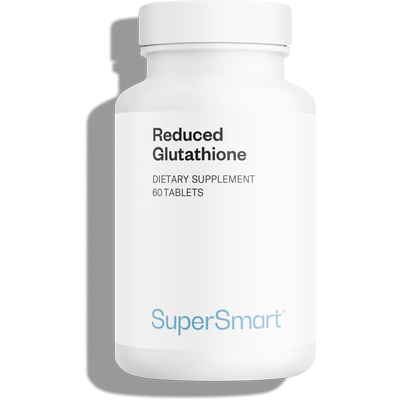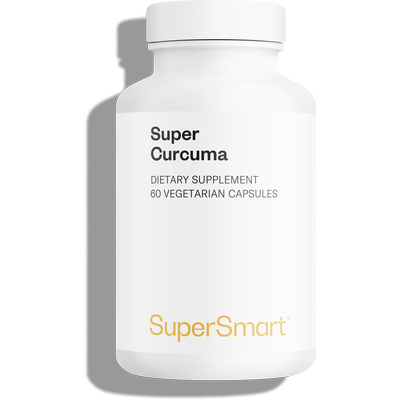21-03-2018
Cognitive decline and memory: the health benefits of curcumin go on and on
 Did you know that in India, where curry is a key element of traditional cooking, fewer people suffer from Alzheimer’s disease and cognitive decline? Scientists took some time to understand why, but they eventually came up with a plausible explanation: they believe it’s the curcumin in turmeric, the spice which gives curry its bright yellow colour, which is responsible.
Did you know that in India, where curry is a key element of traditional cooking, fewer people suffer from Alzheimer’s disease and cognitive decline? Scientists took some time to understand why, but they eventually came up with a plausible explanation: they believe it’s the curcumin in turmeric, the spice which gives curry its bright yellow colour, which is responsible. Initial studies quickly lent credence to this hypothesis. They demonstrated in turn the substance’s anti-inflammatory and antioxidant effects in the laboratory. They then identified its ability to inhibit the spread of cancer cells by promoting synthesis of certain antioxidant molecules such as glutathione 1. But when the research was extended to human studies, scientists failed to observe the same effects as they had in the laboratory. They did find it was able to stabilise the development of pancreatic cancer2 (at a dose of 8g of turmeric a day), as well as that of bowel and other intestinal cancers3, but for other cancers, the results were disappointing.
So why is curcumin so effective for treating cancers of the digestive tract? And why does it appear to be less so in the case of other kinds of tumour? It didn’t take long for a clear answer to emerge: curcumin has very low bioavailability4. If it has proven to be effective at treating intestinal cancers, it’s because it doesn’t have to cross the intestinal barrier in significant amounts before it has an effect. In order to reproduce the same therapeutic effects as those seen in the laboratory, it is therefore necessary to use much larger quantities and to select the most bioavailable forms of curcumin.
Curcumin improves memory and mood
Scientists have recently become interested in another of curcumin’s properties: its amazing ability to prevent neurodegenerative diseases. This is one of the substance’s most intriguing benefits, and it must be admitted that so far, nobody has really been able to explain it.
That explanation could, however, come sooner than expected: a team of researchers has just published the results of an 18-month study of individuals aged 50-90 in which the outcomes of curcumin-supplemented subjects were compared with those of non-supplemented subjects. This is what they found:
- In the curcumin-supplemented group, the researchers observed a 28% improvement in their memory test results compared with 18 months previously. No such improvement, however, was noted in the placebo group.
- Curcumin-supplemented subjects experienced improvements in mood.
- Brain imaging showed much lower levels of tau protein (the main element in degeneration) and beta-amyloid peptides (which form the problematic plaques characteristic of Alzheimer’s disease) in supplemented individuals than in those given a placebo.
How can you benefit from these preventive effects? One of the features of this study is that it used a bioavailable form of curcumin: it’s important to remember that the standard form is poorly absorbed by the body. That should not deter you from making curries or using turmeric in your cooking, quite the opposite, but it does mean that in order to benefit from the same effects as the people in the study, you need to choose a supplement standardised in curcumin which is better absorbed than normal supplements, such as Super Curcuma (29 times more absorbable).
The next step for the researchers is to conduct a larger-scale study and analyse the effects of curcumin according to age, genetic predisposition to Alzheimer’s and existing cognitive problems.
In the meantime, one thing is certain: scientists have slowly but surely come to the same conclusions as traditional Ayurvedic medicine. We’re going to have to admit that thousands of years of human existence did not lead to fanciful beliefs and knowledge … The practices that have survived till the present day have passed the test of natural selection, helping all those who used them to heal better and survive better, and thus be better able to pass on their knowledge and beliefs.
References
1. Surh YJ, Chun KS. Cancer chemopreventive effects of curcumin. Adv Exp Med Biol. 2007;595:149-72. Review.
2. Epelbaum R, Schaffer M, et al. Curcumin and gemcitabine in patients with advanced pancreatic cancer. Nutr Cancer. 2010;62(8):1137-41.
3. Sharma RA, McLelland HR, et al Pharmacodynamic and pharmacokinetic study of oral Curcuma extract in patients with colorectal cancer. Clin Cancer Res. 2001 Jul;7(7):1894-900.
4. Garcea G, Jones DJ, et al. Detection of curcumin and its metabolites in hepatic tissue and portal blood of patients following oral administration. Br J Cancer. 2004 Mar 8;90(5):1011-5.
5. Gary W. Small, Prabha Siddarth et al. Memory and Brain Amyloid and Tau Effects of a Bioavailable Form of Curcumin in Non-Demented Adults: A Double-Blind, Placebo-Controlled 18-Month Trial. The American Journal of Geriatric Psychiatry, 2017; DOI: 10.1016/j.jagp.2017.10.010.
Order the nutrients mentioned in this article
Further reading
28-08-2019
Though many people are not aware of choline, it is actually recognised as an essential nutrient by the prestigious US National Academy of Medicine 1...
Read more10-10-2016
In India, turmeric is used to treat a wide variety of ailments including gastrointestinal problems, inflammation, headaches, infections and colds. It is turmeric’s curcuminoid content,...
Read more28-06-2017
As the control centre of the central nervous system, the brain has to deal with a constant flow of data, processing millions of bytes of...
Read more© 1997-2025 Fondation pour le Libre Choix
All rights reserved
All rights reserved
Free
Thank you for visiting our site. Before you go
REGISTER WITHClub SuperSmart
And take advantage
of exclusive benefits:
of exclusive benefits:
- Free: our weekly science-based newsletter "Nutranews"
- Special offers for club members only



















